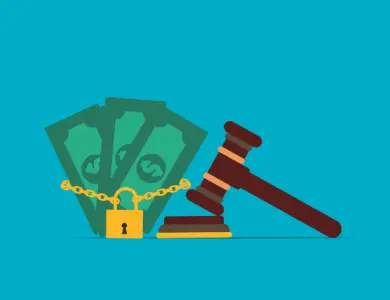how to get out of debt fast with low income

How to get out of debt fast with low income, It can be an enormous burden, especially for those with a low income. It casts an uneasy shadow upon financial wellbeing, leading to anxiety and stress. But, getting out of the shackles of debt is attainable even with a limited budget. This comprehensive guide provides you with effective strategies and concrete steps to free yourself from the burden of debt and enjoy financial freedom regardless of your income.
Understanding Your Debt Landscape:
The first step in tackling debt effectively is to acknowledge its existence and gaining an grasp of its magnitude. This is how to start:
- Take the debts you owe: List all your outstanding debts, including credit card as well as student loans, loans, medical bills, loans and any other balances that are outstanding.
- Find out the type that you owe: Categorize your debt by interest rate like high-interest credit card loans and student loans with lower interest, and so on.
- Calculate the amount due: Get a total view of your debt load by summing all the individual debts owed.
Prioritizing Debt Repayment:
With a thorough understanding of your debts and repayment strategy, you can prioritize your repayment strategies based on the nature and importance for each one. Here are some strategies that can be used:
- Debt avalanche Concentrate on getting rid of the debt with the most interest first, regardless of the remaining balance. This will reduce the total amount of amount of interest that is paid over the course of time.
- The snowball effect of debt. Take care to pay off your lowest amount first regardless of interest rate. This strategy can result in quick wins and can boost motivation.
- Consolidation of debt: Consolidate multiple loans into one loan that has lower interest making repayment easier and possibly lowering overall costs.
Budgeting, Expense and Budget Management
Being able to live below your means is vital to increasing the speed of repayment of debt. Below are a few budgeting techniques:
- Keep track of your expenses and income: Use a budgeting application or spreadsheet to track your cash flow and income.
- Recognize unnecessary expenses: Analyze your spending habits and eliminate unnecessary costs to free up cash for debt repayment.
- Develop a budget: Allocate specific amounts to savings, expenses, and the repayment of debt.
Strategies to Boost Income:
While reducing expenses is crucial but increasing income can increase the speed of the process of repaying debt. Here are some suggestions:
- Find an opportunity to make money as a side hustle Look for ways to earn income in addition to your job, such as online gigs, freelance work and part-time jobs. You can also consider selling items you don’t want.
- Discuss a raise with your employer: Discuss salary adjustments with your current employer according to your contribution and performance.
- Get assistance from the government: Explore government programs which provide financial aid to families and individuals with low incomes.
Additional Strategies to Relieve Debt:
- The process of settling your debts: Negotiate with creditors to settle your debt amount to make a lump sum payment.
- Counseling for credit: Seek professional guidance from credit counseling agencies to create your own debt management plan and bargain for you with your creditors.
- bankruptcy: In extreme cases bankruptcy can provide legal relief from debts that are overwhelming however, it is not a final alternative due to the long-term financial effects.
Maintaining Motivation and avoiding Relapse:
To get out of debt, you need dedication and persistence. Here are some ways to keep you focused and prevent being tempted to go back into debt
- Set achievable objectives: Break down your debt repayment into realistic milestones that track the progress and recognize achievements.
- Get assistance: Surround yourself with friendly people who can understand your financial situation and support your efforts.
- Rewards yourself Recognize milestones. Reward yourself for achieving your goals to stay motivated.
- Avoid impulse spending: Resist unnecessary spending desires and adhere to your budget to avoid piling up more debt.
Empowering resources for people with low incomes:
Many sources are available to aid people with low incomes in the process of repaying debt
Resolving debts even with a small income demands effort and commitment however, it is doable. If you follow the steps laid out in this article to gain the control over your financial situation, decrease your debt burden and open the door to an improved financial future. Be aware that even small, consistent steps made can result in significant improvements in the course of time. With determination, perseverance and the proper tools, you can get rid of the burdens of debt and attain financial freedom.
Above the Fundamentals Enriching Your Debt Strategies for Repayment
The previous sections offered an excellent foundation to escape the burden of debt for those with a low income. The extended portion digs more deeply into strategies for debt relief and tools to help you maximize your debt-free experience.
Strategies for managing Debt Certain Different Types of Debt:
- Credit Cards Prioritize paying off credit card debt with high interest first. Think about transferring balances to a lower-interest credit card in order to cut down on interest costs.
- Students’ Loans Use government-sponsored programs such as income-driven repayment plans, and the Public Service Loan Forgiveness (PSLF) for reduce monthly installments or be eligible to be eligible for debt relief.
- Medical bills: Negotiate with healthcare providers to arrange discount or payment plans. Think about applying to medical assistance programs if they are eligible.
- Personal Loans It is important to prioritize repaying loans for personal use that have high interest rates. Look into refinancing options in order to get a lower interest rate.
Optimization of Your Budget and Financial Management
- Budgeting apps can be used: Leverage technology tools such as Mint or YNAB to streamline the tracking of expenses. Categorize expenditures and find areas of cost reduction.
- Apply the 50/30/20 principle: You should allocate 50percent of your earnings to the essential expenses and 30% for discretionary expenses and 20% to savings and repayment of debt.
- Think about using the “envelope method”: Divide your cash into envelopes for various categories, and monitor your expenditure physically to maintain an eye on your budget.
Maximizing Income Opportunities:
- Learn marketable skills: Take advantage of online courses or certifications to increase your knowledge and boost your earnings potential.
- Discover gig-based platforms Use platforms such as Fiverr, Upwork, or TaskRabbit to provide freelance services or perform online tasks to earn extra revenue.
- Join the share economy Rent your vehicle, a spare bedroom or other items that are not being used on platforms such as Airbnb, Turo, or RentLender to earn passive income.
Leveraging Non-Profit and Government assistance programs:
- low-income Home Energy Assistance Program (LIHEAP): Provides financial help with energy bills for households with low incomes.
- SNP (SNAP): Offers assistance with food to families and low-income households.
- Temporary Aid for needy Families (TANF): It provides temporary financial assistance and other support services to families of low income with children.
- Non-profit organisations: Many local and national organizations offer financial aid as well as debt counseling and job-training programs for those with a low income.
Controlling the emotional toll from Debt
- Find emotional help: Talk to trusted family members, friends, or a therapist, to help manage anxiety and stress that comes with debt.
- Learn mindfulness and stress-management techniques: Meditation, yoga or other techniques for relaxation can ease stress and enhance overall well-being.
- Concentrate on the positive aspects: Recognize milestones and celebrate your achievements to keep you focused and stay away from negativity.
A sustainable financial future:
- Financial literacy is a top priority: Learn about the basics of budgeting as well as managing debt, investing, and other important financial concepts.
- Set your long-term financial goals: Define your financial goals and devise a strategy to reach them.
- Automate the payment of debt and savings: Automate transfers to your savings and debt repayment accounts to guarantee consistent growth toward those financial targets.
- Find a financial professional: Consider consulting a financial advisor to receive personalized advice and assistance in managing your financial affairs.
Conclusion:
The process of releasing debt and attaining financial freedom is feasible even if you have a limited income. If you are able to implement this strategy, obtaining out help when you need it, and staying determined to achieve your goals. You will be able to overcome financial obstacles and create a better financial future for you and your family members. Keep in mind that the road towards financial freedom is a race rather than one of sprints. Celebrate small victories, be proud of your achievements. And learn from the mistakes you make to establish an enduring path to financial success.


One Comment